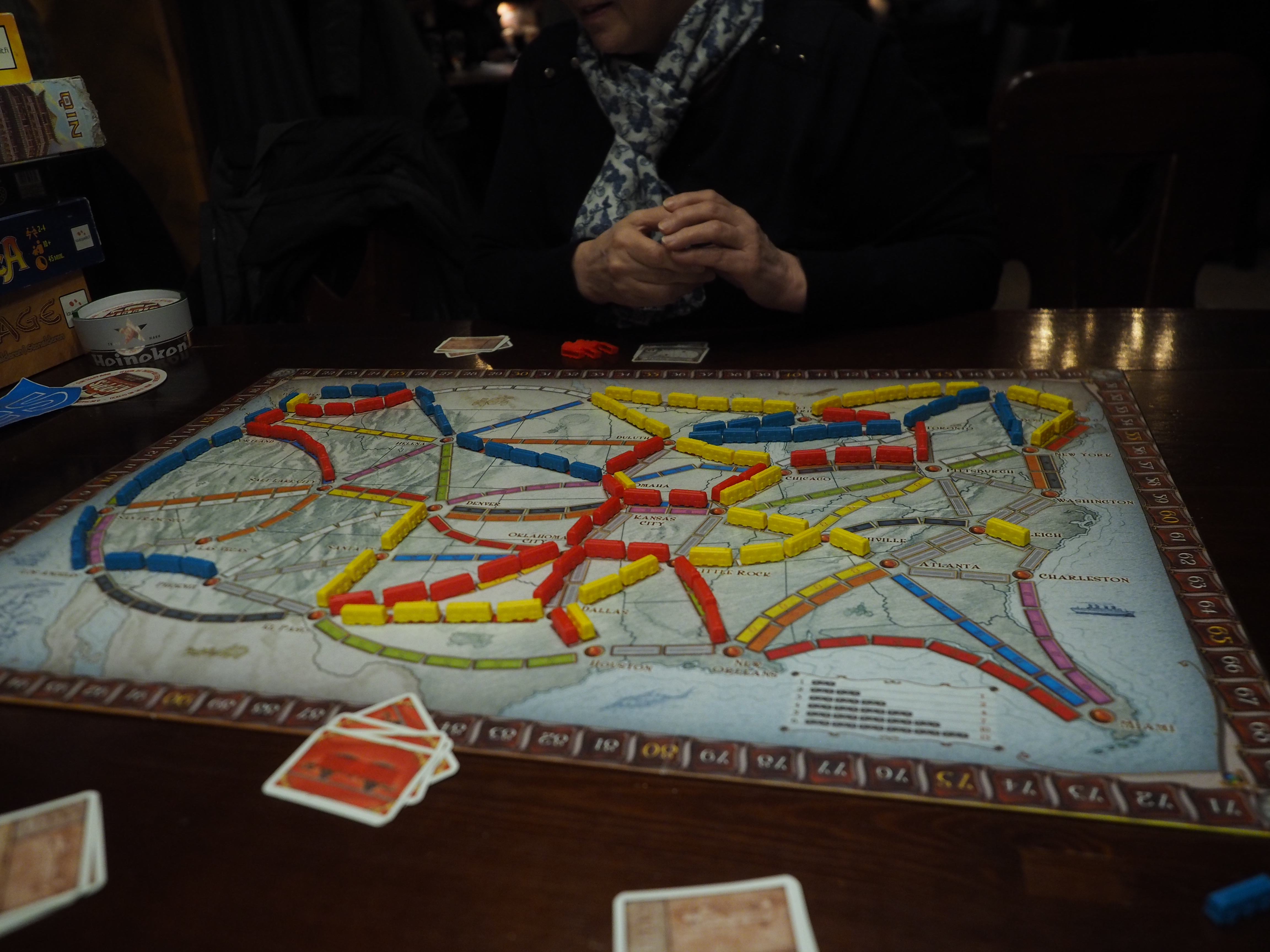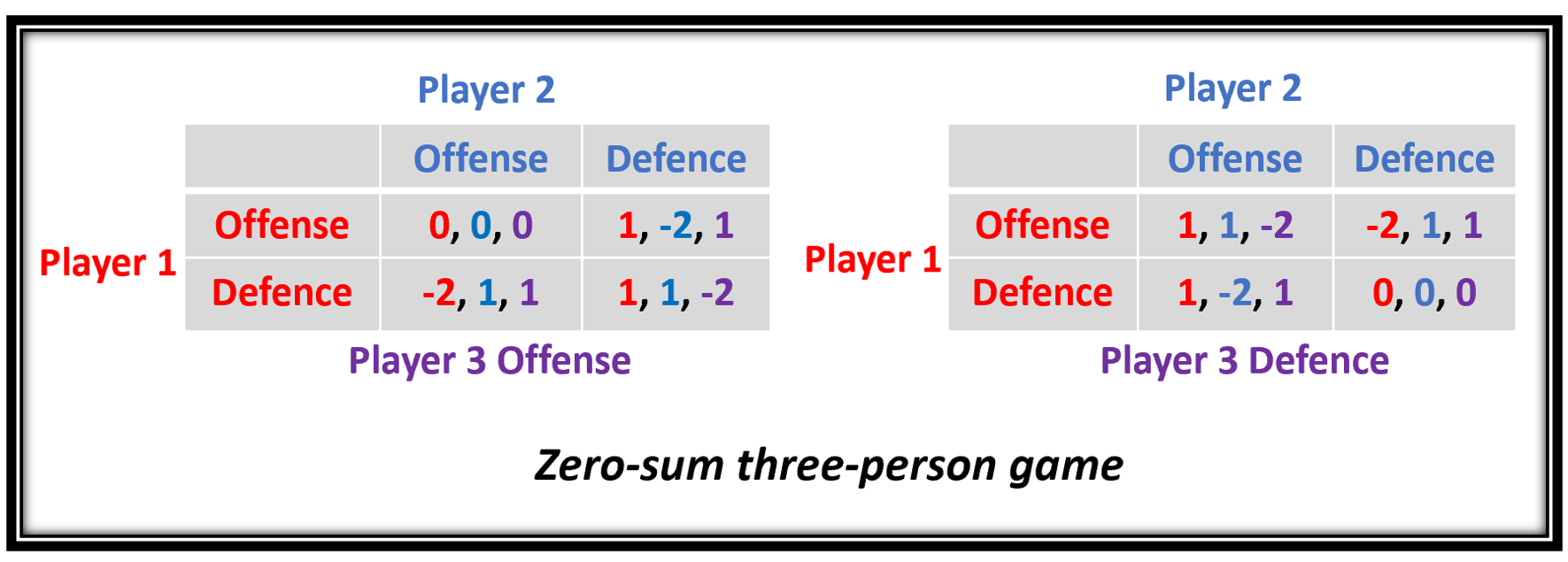|
Complete Information
In economics and game theory, complete information is an economic situation or game in which knowledge about other market participants or players is available to all participants. The utility functions (including risk aversion), payoffs, strategies and "types" of players are thus common knowledge. Complete information is the concept that each player in the game is aware of the sequence, strategies, and payoffs throughout gameplay. Given this information, the players have the ability to plan accordingly based on the information to maximize their own strategies and utility at the end of the game. Inversely, in a game with incomplete information, players do not possess full information about their opponents. Some players possess private information, a fact that the others should take into account when forming expectations about how those players will behave. A typical example is an auction: each player knows his own utility function (valuation for the item), but does not know the utili ... [...More Info...] [...Related Items...] OR: [Wikipedia] [Google] [Baidu] |
Economics
Economics () is the social science that studies the production, distribution, and consumption of goods and services. Economics focuses on the behaviour and interactions of economic agents and how economies work. Microeconomics analyzes what's viewed as basic elements in the economy, including individual agents and markets, their interactions, and the outcomes of interactions. Individual agents may include, for example, households, firms, buyers, and sellers. Macroeconomics analyzes the economy as a system where production, consumption, saving, and investment interact, and factors affecting it: employment of the resources of labour, capital, and land, currency inflation, economic growth, and public policies that have impact on these elements. Other broad distinctions within economics include those between positive economics, describing "what is", and normative economics, advocating "what ought to be"; between economic theory and applied economics; between rational a ... [...More Info...] [...Related Items...] OR: [Wikipedia] [Google] [Baidu] |
Poker
Poker is a family of comparing card games in which players wager over which hand is best according to that specific game's rules. It is played worldwide, however in some places the rules may vary. While the earliest known form of the game was played with just 20 cards, today it is usually played with a standard deck, although in countries where short packs are common, it may be played with 32, 40 or 48 cards.Parlett (2008), pp. 568–570. Thus poker games vary in deck configuration, the number of cards in play, the number dealt face up or face down, and the number shared by all players, but all have rules that involve one or more rounds of betting. In most modern poker games, the first round of betting begins with one or more of the players making some form of a forced bet (the '' blind'' or ''ante''). In standard poker, each player bets according to the rank they believe their hand is worth as compared to the other players. The action then proceeds clockwise as each playe ... [...More Info...] [...Related Items...] OR: [Wikipedia] [Google] [Baidu] |
Jean Tirole
Jean Tirole (born 9 August 1953) is a French professor of economics at Toulouse 1 Capitole University. He focuses on industrial organization, game theory, banking and finance, and economics and psychology. In 2014 he was awarded the Nobel Memorial Prize in Economic Sciences for his analysis of market power and regulation. Education Tirole received engineering degrees from the École Polytechnique in Paris in 1976, and from the École nationale des ponts et chaussées in 1978. He graduated as a member of the elite Corps of Bridges, Waters and Forests. Tirole pursued graduate studies at the Paris Dauphine University and was awarded a DEA degree in 1976 and a Doctorat de troisième cycle in decision mathematics in 1978. In 1981, he received a Ph.D. in economics from the Massachusetts Institute of Technology for his thesis titled ''Essays in economic theory'', under the supervision of Eric Maskin. Career Tirole is chairman of the board of the Jean-Jacques Laffont Fou ... [...More Info...] [...Related Items...] OR: [Wikipedia] [Google] [Baidu] |
Signaling Game
In game theory, a signaling game is a simple type of a dynamic Bayesian game.Subsection 8.2.2 in Fudenberg Trole 1991, pp. 326–331 The essence of a signalling game is that one player takes an action, the signal, to convey information to another player, where sending the signal is more costly if they are conveying false information. A manufacturer, for example, might provide a warranty for its product in order to signal to consumers that its product is unlikely to break down. The classic example is of a worker who acquires a college degree not because it increases their skill, but because it conveys their ability to employers. A simple signalling game would have two players, the sender and the receiver. The sender has one of two types that we might call "desirable" and "undesirable" with different payoff functions, where the receiver knows the probability of each type but not which one this particular sender has. The receiver has just one possible type. The sender moves first, ... [...More Info...] [...Related Items...] OR: [Wikipedia] [Google] [Baidu] |
Screening Game
A screening game is a two-player principal–agent type game used in economic and game theoretical modeling. Principal–agent problems are situations where there are two players whose interests are not necessarily matching with each other, and where complete honesty is not optimal for one player. This will lead to strategies where the players exchange information based in their actions which is to some degree noisy. This ambiguity prevents the other player from taking advantage of the first. The game is closely related to signaling games, but there is a difference in how information is exchanged. In the principal-agent model, for instance, there is an employer (the principal) and a worker (the agent). The worker has a given skill level, and chooses the amount of effort he will exert. If the worker knows his ability (which is given at the outset, perhaps by nature), and can acquire credentials or somehow signal that ability to the employer before being offered a wage, then the ... [...More Info...] [...Related Items...] OR: [Wikipedia] [Google] [Baidu] |
Market Impact
In financial markets, market impact is the effect that a market participant has when it buys or sells an asset. It is the extent to which the buying or selling moves the price against the buyer or seller, i.e., upward when buying and downward when selling. It is closely related to market liquidity; in many cases "liquidity" and "market impact" are synonymous. Especially for large investors, e.g., financial institutions, market impact is a key consideration before any decision to move money within or between financial markets. If the amount of money being moved is large (relative to the turnover of the asset(s) in question), then the market impact can be several percentage points and needs to be assessed alongside other transaction costs (costs of buying and selling). Market impact can arise because the price needs to move to tempt other investors to buy or sell assets (as counterparties), but also because professional investors may position themselves to profit from knowledge that ... [...More Info...] [...Related Items...] OR: [Wikipedia] [Google] [Baidu] |
Handicap Principle
The handicap principle is a hypothesis proposed by the biologist Amotz Zahavi to explain how evolution may lead to "honest" or reliable signalling between animals which have an obvious motivation to bluff or deceive each other. It suggests that costly signals must be reliable signals, costing the signaller something that could not be afforded by an individual with less of a particular trait. For example, in sexual selection, the theory suggests that animals of greater biological fitness signal this status through handicapping behaviour, or morphology that effectively lowers this quality. The central idea is that sexually selected traits function like conspicuous consumption, signalling the ability to afford to squander a resource. Receivers then know that the signal indicates quality, because inferior-quality signallers are unable to produce such wastefully extravagant signals. History The handicap principle was proposed in 1975 by Israeli biologist Amotz Zahavi. The generali ... [...More Info...] [...Related Items...] OR: [Wikipedia] [Google] [Baidu] |
Chess
Chess is a board game for two players, called White and Black, each controlling an army of chess pieces in their color, with the objective to checkmate the opponent's king. It is sometimes called international chess or Western chess to distinguish it from related games, such as xiangqi (Chinese chess) and shogi (Japanese chess). The recorded history of chess goes back at least to the emergence of a similar game, chaturanga, in seventh-century India. The rules of chess as we know them today emerged in Europe at the end of the 15th century, with standardization and universal acceptance by the end of the 19th century. Today, chess is one of the world's most popular games, played by millions of people worldwide. Chess is an abstract strategy game that involves no hidden information and no use of dice or cards. It is played on a chessboard with 64 squares arranged in an eight-by-eight grid. At the start, each player controls sixteen pieces: one king, one queen, two rooks, ... [...More Info...] [...Related Items...] OR: [Wikipedia] [Google] [Baidu] |
Ticket To Ride (board Game)
''Ticket to Ride'' is a railway-themed German-style board game designed by Alan R. Moon. It was illustrated by Julien Delval and Cyrille Daujean and published in 2004 by Days of Wonder. The game is also known as ''Zug um Zug'' (German), ''Les Aventuriers du Rail'' (French), ''Aventureros al Tren'' ( Spanish), ''Wsiąść do pociągu'' ( Polish), and ''Menolippu'' ( Finnish). The game's original version is played on a board depicting a railway map of the United States and southern Canada. Localized editions have subsequently been published depicting maps of other countries, cities and regions. Players collect and play train car cards to claim train routes across the map. Points are earned based on the length of the claimed routes, whoever completes the longest continuous railway, and whether the player can connect distant cities that are determined by drawing ticket cards. The game won the 2004 Spiel des Jahres, the Origins Award for ''Best Board Game of 2004'', the 2005 Diana ... [...More Info...] [...Related Items...] OR: [Wikipedia] [Google] [Baidu] |
Zero-sum Game
Zero-sum game is a mathematical representation in game theory and economic theory of a situation which involves two sides, where the result is an advantage for one side and an equivalent loss for the other. In other words, player one's gain is equivalent to player two's loss, therefore the net improvement in benefit of the game is zero. If the total gains of the participants are added up, and the total losses are subtracted, they will sum to zero. Thus, cutting a cake, where taking a more significant piece reduces the amount of cake available for others as much as it increases the amount available for that taker, is a zero-sum game if all participants value each unit of cake equally. Other examples of zero-sum games in daily life include games like poker, chess, and bridge where one person gains and another person loses, which results in a zero-net benefit for every player. In the markets and financial instruments, futures contracts and options are zero-sum games as well. In ... [...More Info...] [...Related Items...] OR: [Wikipedia] [Google] [Baidu] |

_-_Toulouse_School_of_Economics.jpg)



